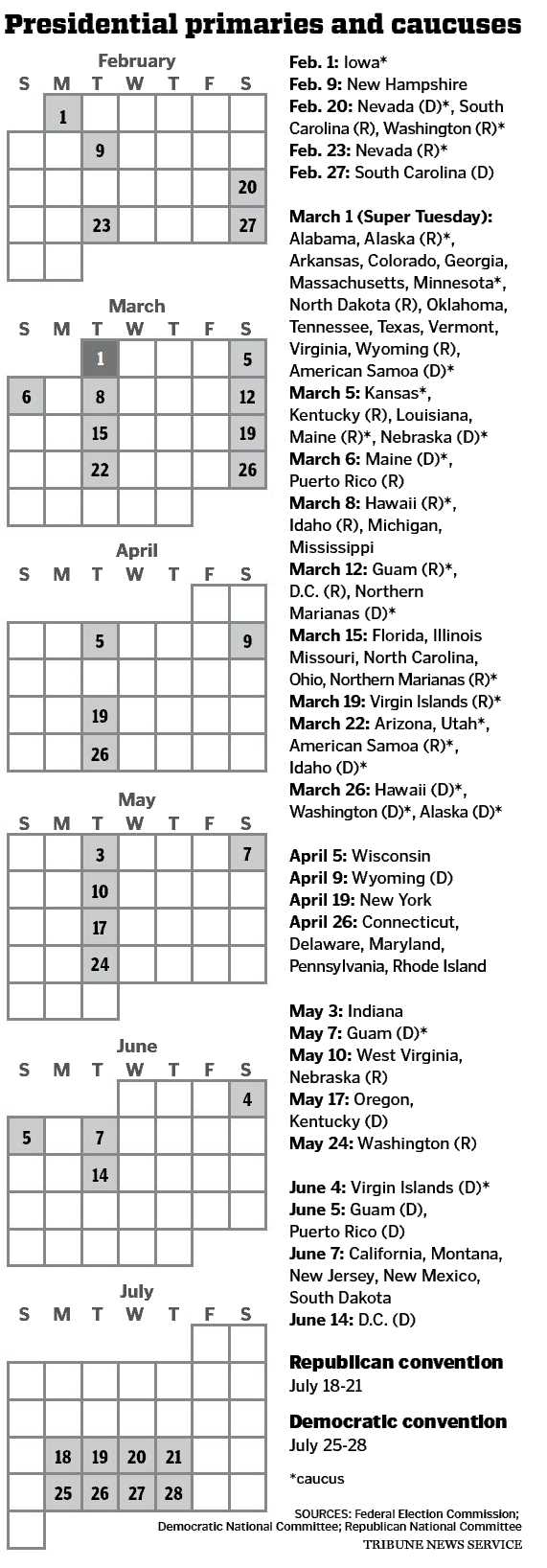Given the large number of candidates for the Republican nomination and the fact that even the top candidate Donald Trump is currently only scoring around 30%, there has been considerable speculation that the convention might arrive with no candidate getting a majority of the delegates necessary to win on the first ballot. The media in particular have been salivating at this prospect of a brokered convention full of wheeling and dealing and knock-down, drag-out, slugfests because usually these conventions are boring, tightly-staged, ceremonial affairs.
This is still an unlikely prospect because no primary contest has yet been held nor any delegates awarded and as time goes by and candidates drop out, there might be a flood of delegates for one candidate at the end that puts him over the top. (I say ‘him’ because there isn’t a chance in hell that Carly Fiorina is going to win this.)
A brokered convention requires that at least three candidates go into it with delegates in hand. But Sam Wang has been doing the tedious task of examining each state’s delegate awarding process and concludes that one does not need 50% of the vote in order to get 50% of the delegates because the rules for each state disproportionately reward the first place finisher, making the likelihood of a brokered convention even more remote.
The Republican Party’s nomination process has a simple, basic premise: If any candidate arrives at the July convention in Cleveland with a majority of the delegates, he (it’s going to be a he this year) can win the nomination on the first ballot. Delegates are assigned, however, through a byzantine process—one that does not require the eventual nominee to get support from a majority of voters.
This feature of the process provides Trump with an opportunity. In surveys of the first three states to vote—Iowa, New Hampshire, and South Carolina—Trump’s support is now between 27 percent and 31 percent. How do these numbers translate into delegates?
For historical guidance, we can look to the 2012 Republican nomination race. Early phases of that four-way race also had a frontrunner who lacked majority backing: Mitt Romney. In the first 22 primaries and caucuses ending on Super Tuesday, Romney received an average of 40 percent of the popular vote—yet he won 59 percent of the delegates.
He points to two specific features that result in this disproportionality.
1) At a statewide level, a minimum level of support is required to get any delegates at all. Up through Super Tuesday (March 1 this year) the threshold for representation is as high as 20 percent, with a median value of 15 percent. In current polling, only Trump consistently rises above this cruel cutoff. Ted Cruz is near the threshold, while Senator Marco Rubio and others are likely to be cut off at the knees.
2) Other delegates are assigned locally, three per congressional district. In addition to thresholded representation, districts also often award delegates only to the top two finishers. Currently, this rule favors Trump and Cruz. The rest get bupkis.
Wang goes into this in more detail on his blog where he says that if in the New Hampshire primary on February 9 the vote comes out as Trump 30%, Rubio 14%, Kasich 13%, Cruz 11%, and Christie 9% with the remaining 23% of votes for the other candidates (which is close to the polls as of today), the delegate outcome will be: Trump 12 (60%), Rubio 3 (15%), Kasich 3 (15%), Cruz 2 (10%), and Christie 0.
Below is the schedule of the primaries. Super Tuesday on March 1, 2016 will be the date in which everything gets clarified.


What a ridiculous goddamn process. Do away with the state involvement, just get a nationwide ballot for each the primaries and final vote.
The Republicans in Colorado, in their infinite wisdom, will not be voting for a presidential candidate in the March first caucuses. I guess they will just wait until the convention and support the winner then. (And claim that they were behind him all the way.)
That people convince themselves this has anything to do with “democracy” really requires some amazing cognitive dissonance.
Does anyone really think anyone other than Trump is going to win this? Or the election?